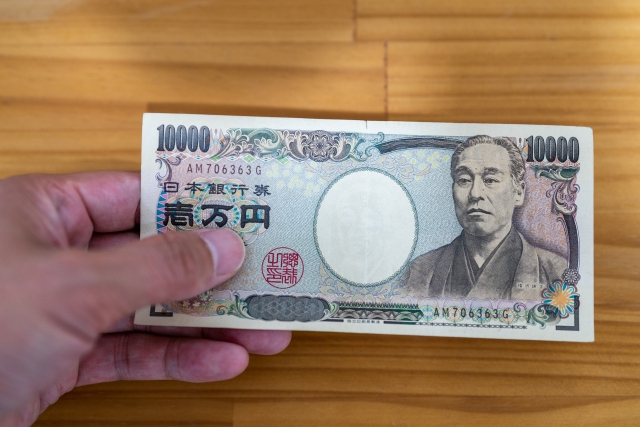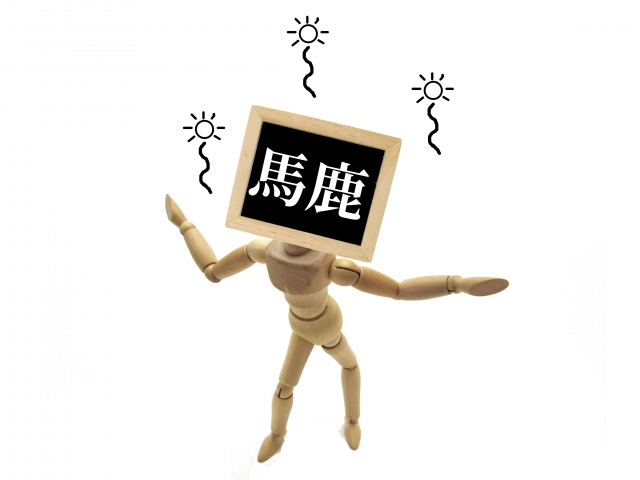When conversing or on line with Japanese people, you may encounter words that you just can’t figure out what they mean.
These are so-called “Japanese slang” unique to Japan.
These words are not often taught at Japanese language schools, but they are used quite frequently in daily life, so you need to know them.
In this article, we would like to explain such “commonly used Japanese slang”.

Click here to master Japanese with one-on-one Japanese tutoring lessons in person or online.
Contents
List of Japanese Slang Words
First, let us list the Japanese slang words.
I will also explain their meanings and examples of usage, so you can use them actively.
「笑」、「w」、「草」 “wara”, “W”, “kusa”
These are slang often seen on LINE and SNS.
The “lol” and “w” are read as “warau”.
It is added at the end of a sentence when expressing something that makes you laugh.
Example: “That story is really funny.
That story is really funny.
In some cases, “笑” is enclosed in parentheses, as in (笑).
There are also cases where the “w” is increased, as in “ww” and “www”.
This is sometimes used when the degree of laughter is great, such as when one has laughed hard.
The “w” may also be written as 「草」:”grass” because the shape of the “w” looks like grass growing out of it.
Neither of these kinds of words is meant to be so malicious; they are simply used to mean “I laughed because it was funny.
(泣) “naki”
This slang is also commonly used on LINE and SNS.
It is read as “naki.
Like 「笑」,「w」,「草」 it is added at the end of a sentence, but it is used to express sadness rather than laughter.
Example: “I’m going to miss you for a month starting tomorrow (cry).
例:明日から1ヶ月も会えなくなるなんて寂しいな(泣)
For more mild sadness, many people used slang such as 「ピエン」:”pien”, but with the end of the boom, the number of people using this slang is gradually decreasing.
「笑」:”Laughing” and 「泣」:”crying” are used not only by young people, but also by people in their 40s and older, although less frequently.
In Japan, they are especially standard slang.

「マジ?」「マジで?」”Maji?”, “Majide?”
This is slang for a feeling like “信じられない。 I can’t believe.
It is read as “Maji.
For example: “Did XX seriously break his leg?
例えば、こんな感じ。”XXはマジで足を折ったのか?
It is often used as a question sentence by adding it to the end of a sentence like this.
In some cases, it is also used at the beginning of a sentence.
This slang is also used mainly by young people, but it is also used quite frequently by people in their 30s and 40s.
Example Seriously, this food is delicious.
例:マジでこの料理美味しい。
When added at the beginning of a sentence, it creates an effect that emphasizes the emotion.
For example, “この料理、美味しいね:This dish is delicious, isn’t it?” is used to describe a generally tasty dish, but when used as “マジで、この料理美味しいね:Seriously, this dish is delicious,” it is taken to mean “今まで食べた中で最も美味しい料理の一つ:One of the best dishes I’ve ever had.
「ググる」 ”Google it.” “Guguru”
This word is also commonly used in conversation and on the Internet.
It is read as “Guguru.
Example sentence. I don’t know, google it”.
例:わからないからググってみるよ。
This means to search Google for an unfamiliar word or phrase.
「ワンチャン」”Wan-chan.”
This word is also commonly used, especially by young people.
It stands for “one chance” and is read as “wan-chan”.
Example sentence. I finished school late, but I think I can make it if I have one-chance.
例:学校終わるの遅くなっちゃったけどワンチャン間に合うと思う。
This is used when there is a non-zero but very small chance that you might make it in time.
「ヤバい」Yabai
This word is used in a broad sense and is used when you are happy or in a pinch.
It reads “yabai”.
Example 1: “Yabai …… It’s soooo good!” .
例①:ヤバいめちゃくちゃ美味しい
In this case, it is used when you are surprised or impressed.
Example 2: “Yabai, I forgot my homework.
例②:ヤバい宿題するの忘れた
This is how to use it when you make a mistake and are driven into a pinch.
Not only young people but also people in their 30s and older may use it unexpectedly.
This means to search Google for an unfamiliar word or phrase.
「飛ぶぞ」「トブゾ」 ”I’m going to fly” “Tobzo”.
These words have been in vogue for the past few years, especially among young people.
It reads “tobuzo.”
It is used when you are emotionally and mentally flying.
For example, “Try this food. Tobuzo.
例:この料理食べてみ?飛ぶぞ
Otherwise, it is used when you are feeling sleepy, as in “Oh no, I’m going to fly away. :「ヤバい、飛びそう」”.
You don’t have to be in a state of really feeling faint to use this word casually.
「ツンデレ」 Tsundere.”
This word is often used in manga and anime.
It is also used in everyday conversation.
It reads “tsundere”.
Example: Mr. ○○ is a tsundere.
例:○○さんはツンデレだなー
A tsundere is a person who usually treats you coldly but has a sweet attitude when you are alone with him or her.
In Japan, a cold person’s attitude is sometimes described as “tsuntsun” and a sweet attitude as “dere dere.
The term “tsundere” comes from the fact that the person has both sides of these two attitudes.
「ドン引き」 ”Donbiki”
This word is used when you have a bad impression, “What is this person saying?”
It is read as “donbiki”.
Here is an example sentence.” I was appalled by Mr. XX’s attitude today.
例:今日の○○さんの態度にドン引きしたよ
Be careful when using this word because it means that you were mentally disgusted.

諭吉(ゆきち) ”Yukichi”
This is a uniquely Japanese slang term used as another name for the 10,000 yen bill.
It is read as “yukichi”.
Example 1: It is time to use the last yukichi of the month.
例①:今月最後の諭吉を使う時がきたか
Example 2: I won three yukichi at a horse race.
例②:競馬で諭吉3人ゲットしたよ
The person depicted on the Japanese 10,000-yen bill is a great man named “Fukuzawa Yukichi,” and this person’s name is taken to mean the same thing as the 10,000-yen bill.
Conclusion
In this article, we have explained “commonly used Japanese slang.
The slang introduced here is very useful to remember, especially since it is commonly used in Japanese society.
By using these slangs, foreigners may become friends with Japanese people at once, so please try to use them actively when you come to Japan.
Related article:










